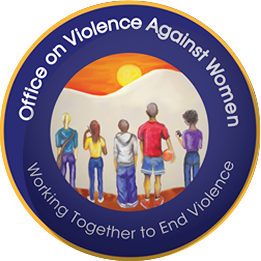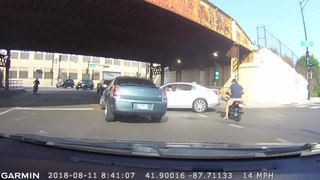Robbery is the crime of taking or attempting to take anything of value by force, threat of force, or by use of fear. According to common law, robbery is defined as taking the property of another, with the intent to permanently deprive the person of that property, by means of force or fear; that is, it is a larceny or theft accomplished by an assault. Precise definitions of the offence may vary between jurisdictions. Robbery is differentiated from other forms of theft by its inherently violent nature ; whereas many lesser forms of theft are punished as misdemeanors, robbery is always a felony in jurisdictions that distinguish between the two. Under English law, most forms of theft are triable either way, whereas robbery is triable only on indictment. The word "rob" came via French from Late Latin words of Germanic origin, from Common Germanic raub "theft".

Extortion is the practice of obtaining benefit through coercion. In most jurisdictions it is likely to constitute a criminal offence; the bulk of this article deals with such cases. Robbery is the simplest and most common form of extortion, although making unfounded threats in order to obtain an unfair business advantage is also a form of extortion.

The September 11 attacks transformed the first term of President George W. Bush and led to what he referred to as the war on terror. The accuracy of describing it as a "war" and its political motivations and consequences are the topic of strenuous debate. The U.S. government increased military operations, economic measures, and political pressure on groups that it accused of being terrorists, as well as increasing pressure on the governments and countries which were accused of sheltering them. October 2001 saw the first military action initiated by the US. Under this policy, NATO invaded Afghanistan to remove the Taliban regime and capture al-Qaeda forces.

Identity theft, identity piracy or identity infringement occurs when someone uses another's personal identifying information, like their name, identifying number, or credit card number, without their permission, to commit fraud or other crimes. The term identity theft was coined in 1964. Since that time, the definition of identity theft has been legally defined throughout both the U.K. and the U.S. as the theft of personally identifiable information. Identity theft deliberately uses someone else's identity as a method to gain financial advantages or obtain credit and other benefits. The person whose identity has been stolen may suffer adverse consequences, especially if they are falsely held responsible for the perpetrator's actions. Personally identifiable information generally includes a person's name, date of birth, social security number, driver's license number, bank account or credit card numbers, PINs, electronic signatures, fingerprints, passwords, or any other information that can be used to access a person's financial resources.
The National Institute of Justice (NIJ) is the research, development, and evaluation agency of the United States Department of Justice (DOJ).

The United States Office on Violence Against Women (OVW) was created following the Violence Against Women Act (VAWA) of 1994. The Act was renewed in 2005, 2013 and again in 2022. The Violence Against Women Act legislation requires the Office on Violence Against Women to work to respond to and reduce violence against women in many different areas, including on college campuses and in people's homes. VAWA requires Office on Violence Against Women to administer justice and strengthen services for victims of domestic violence, dating violence, sexual assault, and stalking.
Title VI: Providing for victims of terrorism, public safety officers and their families is the sixth of ten titles which comprise the USA PATRIOT Act, an anti-terrorism bill passed in the United States after the September 11, 2001 attacks. It provides aid to the families of Public Safety Officers who were injured or killed in terrorist attacks, and amends the Victims of Crime Act of 1984.
OVS is a Mexican American (Chicano) gang from Ontario, California.

Human trafficking in Australia is illegal under Divisions 270 and 271 of the Criminal Code (Cth). In September 2005, Australia ratified the Protocol to Prevent, Suppress and Punish Trafficking in Persons, especially Women and Children, which supplemented the United Nations Convention against Transnational Organized Crime. Amendments to the Criminal Code were made in 2005 to implement the Protocol.

Crime in New Zealand encompasses criminal law, crime statistics, the nature and characteristics of crime, sentencing, punishment, and public perceptions of crime. New Zealand criminal law has its origins in English criminal law, which was codified into statute by the New Zealand parliament in 1893. Although New Zealand remains a common law jurisdiction, all criminal offences and their penalties are codified in New Zealand statutes.

The Detective Bureau is one of 14 bureaus within the New York City Police Department and is headed by the three-star Chief of Detectives. The Detective Squad was formed in 1857 with the Detective Bureau later formed in 1882.
Barbados is a source and destination country for men, women, and children subjected to trafficking in persons, specifically forced prostitution and forced labor. Some children in Barbados are subjected to commercial sexual exploitation in “transactional sex” wherein a third party such as a parent receives a benefit from the child's participation in sexual activity. Researchers identified patterns of transactional sex within families, most often by adult male caretakers such as step-fathers, as well as child prostitution outside the home. Women from the Dominican Republic, Guyana, and Jamaica voluntarily enter Barbados as illegal migrants, and some expect to engage in prostitution. Some of these women are exploited in forced prostitution subsequent to their arrival. Some other foreign women who entered the country illegally are exploited in involuntary domestic servitude in private homes. Foreign men have been transported to Barbados for the purpose of labor exploitation in construction and other sectors. Sex traffickers, primarily organized criminals from Guyana, form partnerships with pimps and brothel owners from Trinidad and Tobago and Barbados, and lure women to Barbados with offers of legitimate work. Trafficking victims tend to enter the country through legal means, usually by air; traffickers later use force and coercion to obtain and maintain the victims' work in strip clubs, massage parlors, some private residences, and “entertainment clubs” which operate as brothels. Traffickers use methods such as threats of physical harm or deportation, debt bondage, false contracts, psychological abuse, and confinement to force victims to work in construction, the garment industry, agriculture, or private households.

In traffic laws, a hit and run or a hit-and-run is the criminal act of causing a traffic collision and not stopping afterwards. It is considered a supplemental crime in most jurisdictions.
Victims' rights are legal rights afforded to victims of crime. These may include the right to restitution, the right to a victims' advocate, the right not to be excluded from criminal justice proceedings, and the right to speak at criminal justice proceedings.

In California state elections, 2014 was the first year in which the top statewide offices were elected under the nonpartisan blanket primary, pursuant to Proposition 14, which passed with 53% voter approval in June 2010. Under this system, which first went into effect during the 2012 election year, all candidates appear on the same ballot, regardless of party. In the primary, voters may vote for any candidate, regardless of their party affiliation. The top two finishers, regardless of party, then advance to face each other in the general election in November.

The National Center for Victims of Crime (NCVC) is an American 501(c)(3) nonprofit organization dedicated to providing information, resources, and advocacy for victims of all types of crime, as well as the people who serve them. The National Center for Victims of Crime hosts the annual National Training Institute, designed to share current research and effective policies with service providers, in order to advance the quality of services available to victims of crime.
The Northumbria Police and Crime Commissioner (PCC) is an elected official in the United Kingdom. The office was created in November 2012 following the enactment of the Police Reform and Social Responsibility Act 2011. The PCC is tasked with the governance of the Northumbria Police, responsible for the metropolitan county of Tyne and Wear, and the ceremonial county of Northumberland. Susan Dungworth is the current PCC.
Domestic violence and abuse in the United Kingdom are a range of abusive behaviours that occur within relationships. Domestic violence or abuse can be physical, psychological, sexual, financial or emotional. In UK laws and legislation, the term "domestic abuse" is commonly used to encompass various forms of domestic violence. Some specific forms of domestic violence and abuse are criminal offences. Victims or those at risk of domestic abuse can also be provided with remedies and protection via civil law.

Arnold Schwarzenegger was an early opponent of same-sex marriage in the United States, including during his Governorship of California. As an elected official he opposed legal recognition of same-sex marriage but otherwise he supported LGBT rights legislation, including civil unions.










